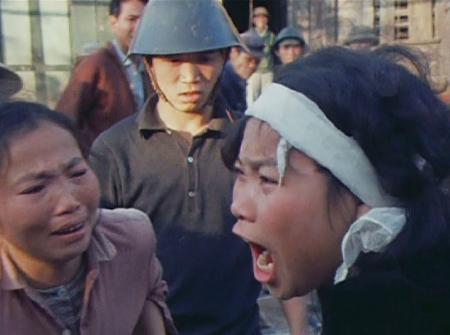A Thousand Films: Unpacking the Complex Reality of the Vietnam War on Screen
The Vietnam War, a conflict that deeply scarred a generation, continues to resonate in popular culture. Beyond the historical narratives, the war's complex reality finds expression in a vast cinematic landscape – a "thousand films," if you will, each offering a unique perspective. This article delves into the evolution of Vietnam War films, exploring their diverse portrayals, enduring impact, and ongoing relevance in understanding this pivotal historical event.
From Propaganda to Introspection: The Shifting Lens of Vietnam War Cinema
Early portrayals of the Vietnam War were heavily influenced by government propaganda, often glorifying American military efforts and minimizing the complexities of the conflict. Films like The Green Berets (1968) exemplify this approach, presenting a sanitized and heroic view of the war.
However, as the war progressed and public opinion shifted, so did the cinematic representations. The anti-war movement fueled a wave of films that challenged the official narrative, offering more critical and nuanced perspectives. This shift is evident in films like Apocalypse Now (1979), which uses surreal imagery to explore the psychological toll of war, and Platoon (1986), a visceral depiction of the brutality and moral ambiguity experienced by American soldiers.
Key Themes Explored in Vietnam War Films:
- The Psychological Trauma of War: Many films explore the lasting effects of combat on soldiers, depicting PTSD, moral disillusionment, and the struggle to reintegrate into civilian life. Examples include Coming Home (1978) and The Deer Hunter (1978).
- The Moral Ambiguity of Warfare: The conflict's ethical complexities are often central to these films, questioning the justifications for war and highlighting the suffering inflicted on both sides. Full Metal Jacket (1987) masterfully portrays this ambiguity.
- The Vietnamese Perspective: While initially underrepresented, films like The Quiet American (2002) and Heaven & Earth (1993) begin to offer more empathetic portrayals of the Vietnamese experience during the war.
- The Political Landscape: Many films explore the political machinations and strategic blunders that contributed to the protracted conflict, often highlighting the limitations of American foreign policy.
Beyond Hollywood: Independent Films and Documentaries
Beyond the mainstream Hollywood productions, independent films and documentaries offer a crucial counterpoint, providing alternative narratives and voices. These often delve into lesser-known aspects of the war, focusing on specific battles, individuals, or the lasting consequences of the conflict. Documentaries like Hearts and Minds (1974) and Ken Burns's The Vietnam War (2017) provide valuable historical context and diverse perspectives.
Finding Authentic Representations: Navigating the Cinematic Landscape
The sheer volume of Vietnam War films makes it crucial to approach them critically. Understanding the historical context of each film, its director's intent, and its potential biases is essential for a nuanced understanding of the war itself. Looking for films that incorporate multiple perspectives and avoid simplistic narratives will lead to a richer and more comprehensive understanding of this multifaceted conflict.
The Enduring Legacy: Why Vietnam War Films Still Matter
The Vietnam War's impact continues to shape global politics and our understanding of armed conflict. The films created about this war serve as vital historical documents, artistic expressions, and ongoing reminders of the human cost of war. By engaging with these diverse cinematic portrayals, we can gain a deeper appreciation of the complex realities of the conflict and its enduring legacy.
Call to Action: Explore a diverse selection of Vietnam War films and documentaries to gain a broader perspective on this pivotal historical event. Share your thoughts and favorite films in the comments below! Let's keep the conversation about the Vietnam War and its cinematic representations alive.
